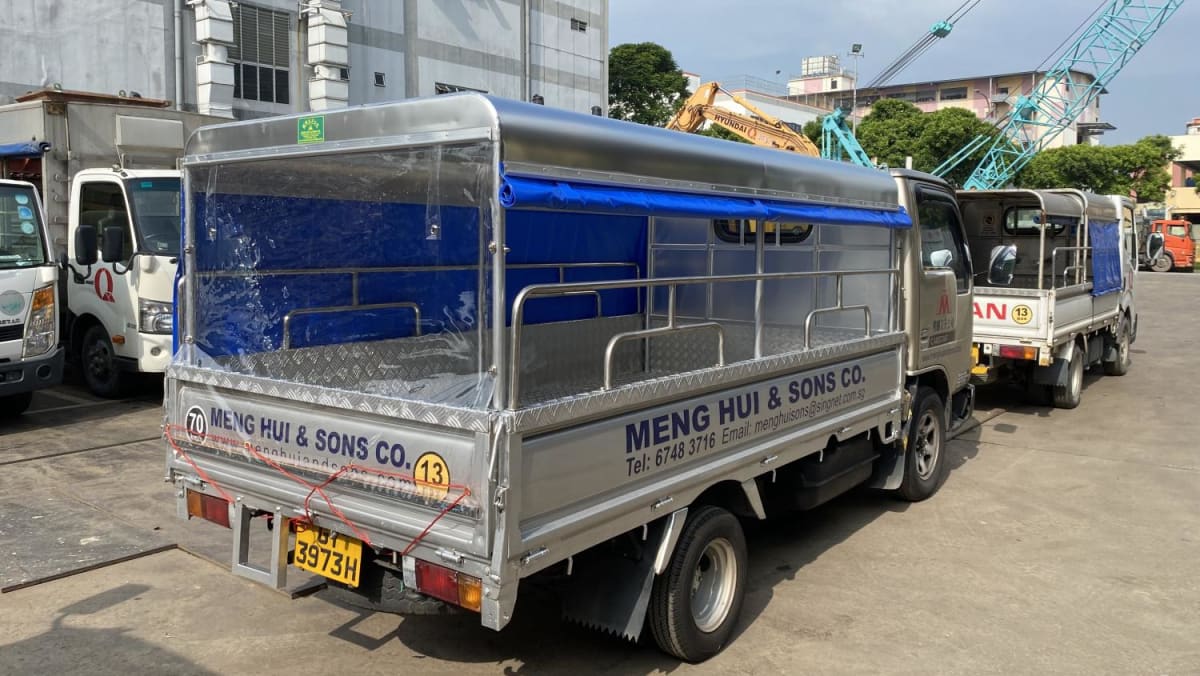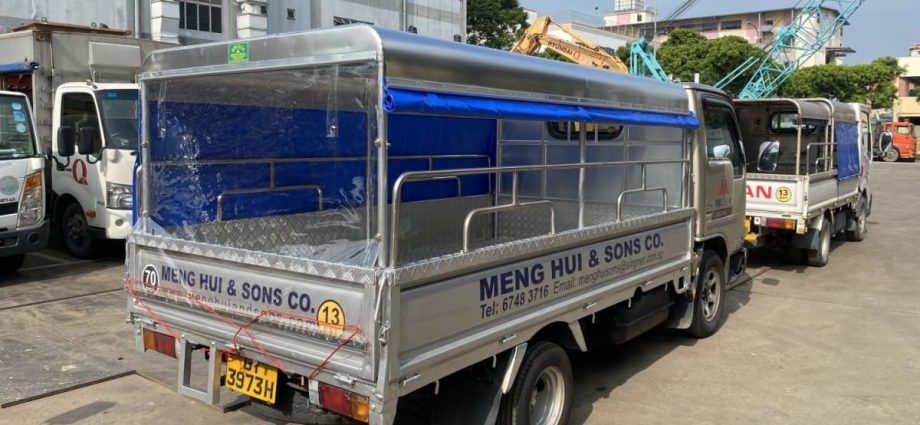
SINGAPORE: Employers will soon need to provide at least 30 minutes of rest for workers who double up as drivers and have worked at least six hours onsite, before they can ferry other workers in lorry rear decks.
Employers will also have to designate a “vehicle buddy” for all lorries with workers in rear decks. These vehicle buddies must have been briefed on their role, and should check that the driver is fit to drive and remains alert while driving.
Set to be rolled out by Jan 1, 2023, these were among updated measures to enhance the safety of worker transportation announced by the Ministry of Manpower (MOM), the Land Transport Authority (LTA) and the Traffic Police (TP) on Wednesday (Oct 19).
MOM will also release an advisory on Safe Transport of Workers that will include recommendations on how employers, drivers, vehicle buddies and lorry passengers can fulfil their roles.
“There is, of course, broad recognition that the safety of workers is key, and it is necessary to have measures which are practical and effective, that can be rigidly and widely implemented on the ground,” said Senior Minister of State for Transport Amy Khor.
She had previously spoken about safety of worker transport during the Committee of Supply debate in March.
RAIN COVERS FOR LORRIES
To further improve worker welfare, LTA will require all lorries used to ferry workers to be fitted with rain covers.
“These rain covers, which are typically canvas tarps, must be installed on the canopy for all non-enclosed sections of the lorry deck, including partially opened gaps, to shield workers from inclement weather,” the agencies said in a media release.
At least one side of the canopy must also be fitted with a transparent rain cover to “provide a sufficiently lit environment” for workers onboard.
To give companies time to adjust, the rain cover requirement will be implemented in three phases:
- Newly registered lorries from Jan 1, 2023
- In-use light lorries (maximum laden weight not exceeding 3,500kg) from Jul 1, 2023
- In-use heavy lorries (maximum laden weight exceeding 3,500kg) from Jan 1, 2024
Responding to questions about why implementation would take time, Dr Khor said workshops would require “lead time to be able to supply and install these on all passenger bearing lorries”.
Dr Khor also highlighted that retrofitting and installing seatbelts in the rear deck of lorries “may actually affect the structural integrity and stability of lorries”, and pose a danger to the safety of drivers and passengers.
“Beyond structural integrity and safety actually, the dealers and workshops have also told us that (installing seatbelts in the rear decks of lorries) could also lead to potential implication on potential liability.
“For instance, you know, the warranty is void because of rectification post-installation,” she said.
SPEED LIMITERS REQUIRED
The Traffic Police will also require all lorries exceeding a maximum laden weight (MLW) of 3,500kg to be equipped with speed limiters.
Speed limiters are already mandated for all goods vehicles with MLW exceeding 12,000kg, and speed warning devices are required for all goods vehicles with MLW not exceeding 3,500kg.
“I think (TP is) also looking at the supply of speed limiters, effectiveness of the different speed limiters, as well as the number of workshops who are authorised to install the speed limiter,” said Dr Khor.

